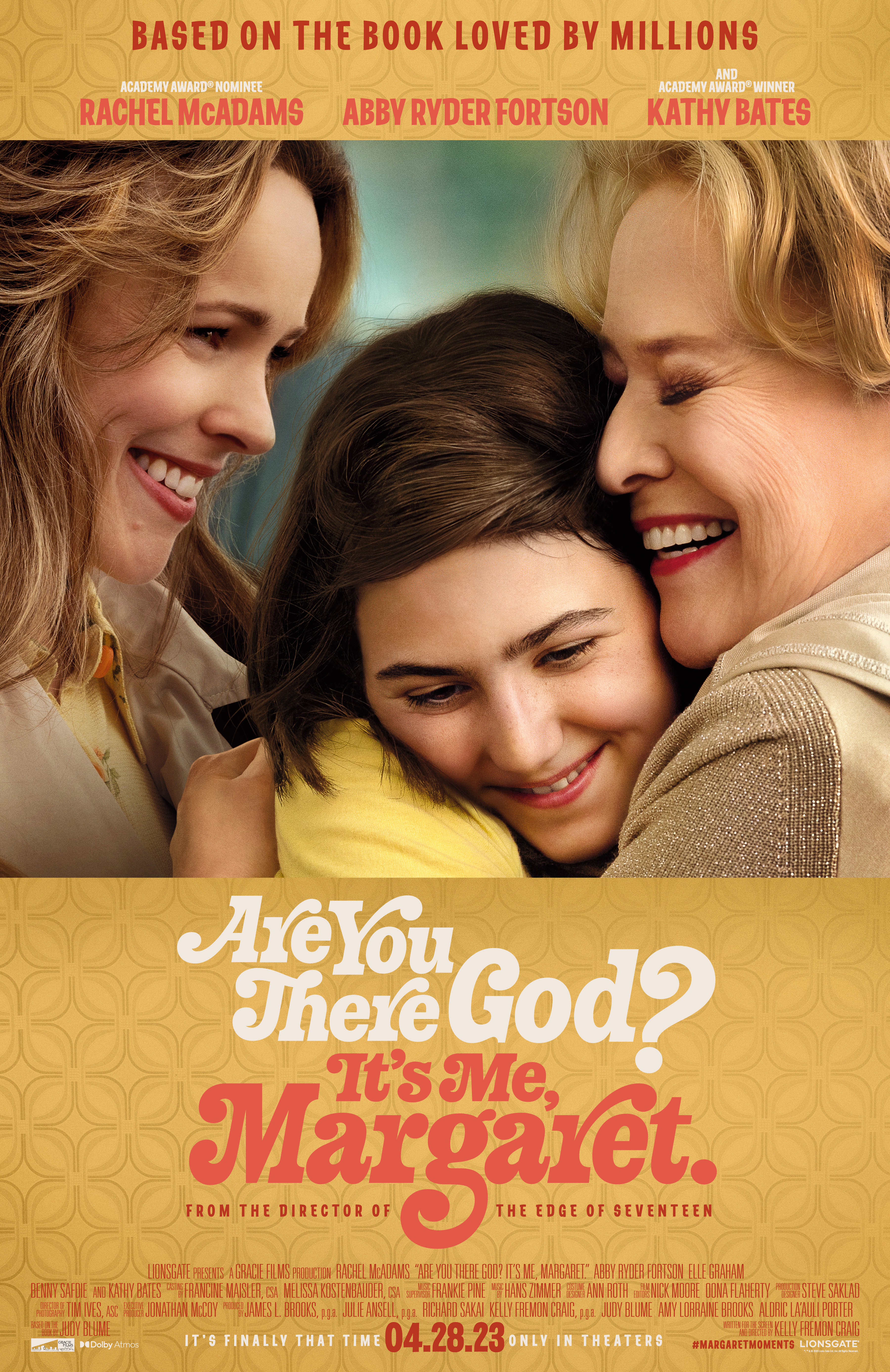REVIEW: ‘Are You There God? It’s Me, Margaret’ Feels Like Catching Up with an Old Friend

Author Judy Blume has shaped the lives of countless readers over the last four decades, beginning with the release of her novel Are You There God? It’s Me, Margaret in 1970. Blume’s ability to captivate audiences, young and old, with her timeless stories has spanned her career with Are You There God? It’s Me, Margaret considered by many to be Blume’s most well-known book. Lionsgate brings Blume’s story to life on the big screen after years of Blume rejecting potential movie offers. Blume’s decision to hold out until now feels like the right call after seeing this film.
Margaret Ann Simon, the film and novel’s title character, is a sixth grader grappling with all of the changes happening in her life. Her parents are moving the family to the New Jersey suburbs, after a childhood spent in New York City with the grandmother she adores close by. A new school with new friends combined with new changes in her home life and in her own body lead Margaret to feel as if she needs to reach out to something greater than herself. Margaret is the child of an interfaith marriage (her father is Jewish while her mother is Christian), and she has been raised without a set religion. One day she begins to pray to God. She’s not sure if she even believes in God, she simply just needs someone to talk to.
Are You There God? It’s Me, Margaret does not shy away from the hard-hitting moments of becoming a young adult. The film fully leans into the mind of a sixth grade girl in an unfamiliar environment, suddenly feeling all of this unexpected pressure to grow up and fit in. Margaret’s goal, and the focus of many prayers to God, is to keep up with her friends as they all begin to change and grow, lest she be left behind.
As Margaret continues the journey of transitioning from a child to a young adult, she begins her own quest to learn more about religion, as part of a school project. She attends temple with her grandmother and a Christmas service with her friend Nancy, among others, hoping that in one of these houses of worship she’ll find the connection she feels when she speaks to God on her own. Margaret is also becoming aware of the world around her as her views of the world, and her life, evolve. Why aren’t her mother’s parents in her life? Are her new friends in New Jersey actually her friends? Or are they actually kind of mean? And, importantly to Margaret, how can she get the boy down the street to notice her?
Directed by Kelly Fremon Craig, the film is an excellent adaptation of Blume’s beloved story. Margaret is brought to life by Abby Ryder Fortson, in her first lead role and Forston is a delight. The film is set in the 1970s, as it is in the book, and has few modern upgrades. Fortson delivers as an awkward 11 year old girl, struggling to understand her changing body while simultaneously hating that her body isn’t changing fast enough. Fortson’s joined in the film by Rachel McAdams, as her mother Barbara, and Kathy Bates, as her grandmother, Sylvia. McAdams and Bates are fantastic in their roles, both encapsulating women of different ages trying to handle their own challenges of their dynamic worlds. McAdam’s Barbara is trying to fit in as a housewife in the suburbs, who it turns out, isn’t all that interested in school fundraising and domestic affairs. Bates’ Sylvia is learning to live in a world where her family is no longer on the same block and she’s suddenly needing to create her own life at an age where starting fresh isn’t the most appealing prospect.
The trio is joined by Benny Safdie (Margaret’s father), Elle Graham (Margaret’s new friend, Nancy), and Echo Kellum (Margaret’s 6th grade teacher, Mr. Benedict) in the film. Each performs well in their role, driving the story along and providing moments of humor and amusement. At the end of the day, however, this story is about Margaret and her development, mentally, physically, emotionally, and spiritually. Bringing to life a well-loved character, such as Margaret, is a daunting task, especially in this instance with a character who has transcended decades. Fortson understands this, respects this, and executes on this.
Those who loved Blume’s novel will not be disappointed in Lionsgate’s effort. Just like re-reading a book you loved as a child, experiencing Are You There God? It’s Me, Margaret on the big screen is like catching up with an old friend. Your heart will be full, your eyes may be a little damp, but you’ll be happy to have spent the last few hours with something that understood you then, a time when you rarely felt understood at all.
Grade: A